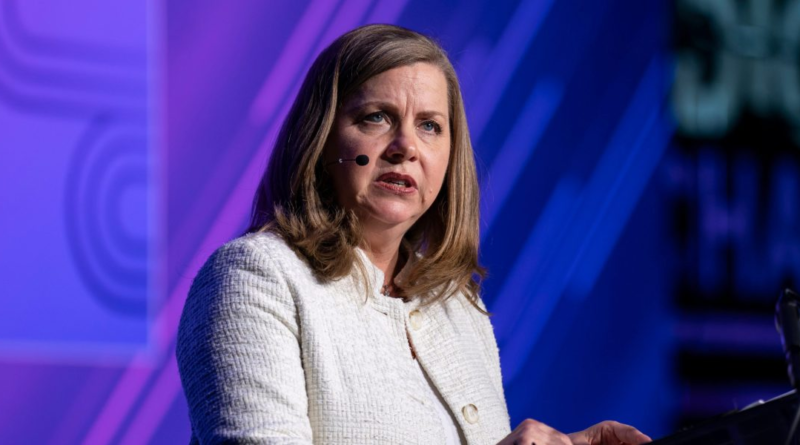Fed governor says inflation is still too high and downplays unemployment rise
Federal Reserve Governor Michelle Bowman said she still sees upside risks for inflation and continued strength in the labor market, signaling she may not be ready to support an interest-rate decrease when US central bankers next meet in September.
“The progress in lowering inflation during May and June is a welcome development, but inflation is still uncomfortably above the committee’s 2% goal,” Bowman said Saturday in a speech to the Kansas Bankers Association in Colorado Springs, referring to the Fed’s rate setting panel. “I will remain cautious in my approach to considering adjustments to the current stance of policy.”
US fiscal policy, pressure on the housing market from immigration and geopolitical risks all could put upward pressure on prices, she said.
The Fed’s preferred measure of inflation, the personal consumption expenditures price index, declined to 2.5% in the 12 months through June. As inflation has approached their goal, many officials have shifted more of their attention to the labor market, which has showed signs of deteriorating under the strain of high rates.
Fed chair Jerome Powell said July 31 a rate cut will be on the table when policymakers gather Sept. 17-18. Expectations for a decrease were cemented among economists and investors when July jobs data came in surprisingly weak.
Bowman, a former banking regulator in Kansas, said the recent jump in joblessness to 4.3% may be exaggerating the degree of labor-market cooling.
“The rise in the unemployment rate this year largely reflects weaker hiring, as job searchers entering the labor force are taking longer to find a job, while layoffs remain low,” she said.
Bowman acknowledged the risks of waiting too long to cut. Should inflation data continue to improve, she said, “It will become appropriate to gradually lower the federal funds rate to prevent monetary policy from becoming overly restrictive.”
She also emphasized officials will receive a range of new data, including one employment and two inflation reports, before they meet in September.




